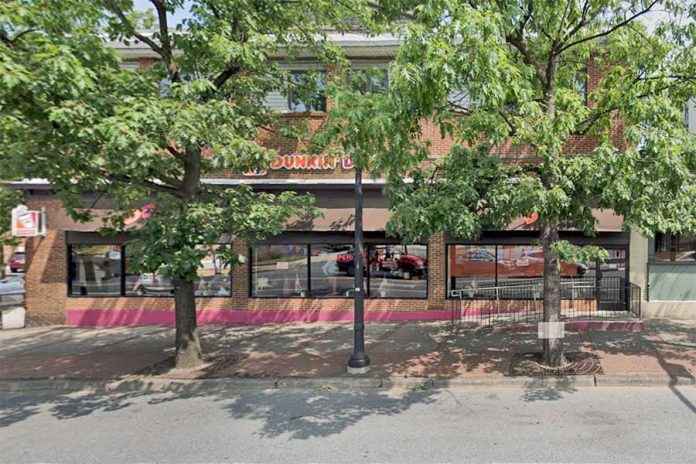A homeless, HIV-positive transgender woman of color is urging a federal judge to move forward with her antibias case against a Dunkin’ Donuts shop, despite the shop’s request to hold the case in abeyance until the Supreme Court decides whether LGBT individuals are covered under Title VII of the 1964 Civil Rights Act.
From March 2018 to May 2018, “Jane Doe” worked as a cashier at the Dunkin’ Donuts
shop on the 200 block of West Fourth Street in Bethlehem.
Bethlehem is a city located about 48 miles northwest of Philadelphia in the Lehigh
Valley, with about 75,000 residents. It has an LGBT-inclusive antibias law.
Doe’s Nov. 8 federal lawsuit claims she was subjected to anti-LGBT slurs shortly after she began working at the donut shop. Slurs hurled at her by co-workers and customers
include “f–king f—ot,” “tr—y,” “dude,” “b—h,” and “n—a.”
Doe, 26, alleges that because co-workers routinely misgendered her, customers would do so as well, despite her protests. Doe also was denied use of the store’s women’s restroom, after a customer complained about her using the facility, according to the suit.
In one incident, a customer refused to interact with Doe at the cash register. As a result,
Doe was temporarily moved to the rear of the store, where she was out of the view of the
customer. In another incident, a customer complained that Doe wanted to be referred to as a woman. A store manager sided with the customer and did not correct the person. Additionally, Doe was subjected to threats of violence from a former employee of the donut shop, according to court records.
In a Dec. 20 motion, Dunkin’ Donuts asked U.S. District Joseph F. Leeson Jr. of the Eastern District of Pennsylvania to either dismiss the case or hold it in abeyance until the U.S. Supreme Court decides whether Title VII of the 1964 Civil Rights Act covers LGBT people. A decision by the high court on that issue isn’t expected for several months.
A Feb. 7 reply brief filed on behalf of Doe urges Leeson to move forward with the case. “[Doe] is a homeless transgender woman,” the brief states. “[Doe] respectfully contends this is a situation in which she was respectfully placed by [Dunkin’ Donuts], who [Doe] alleges terminated her illegally, thereby leaving her without the ability to properly support herself. The employment discrimination [Doe] faced was compounded by the fact [Doe] was rendered without stable housing. [Doe] has an interest in the prompt prosecution and ultimate resolution of this case, and the administration of justice in [Doe’s] case in a timely manner.”
The 44-page brief also notes that Bethlehem has an LGBT-inclusive antibias law. Even if the Supreme Court rules that LGBT people don’t have federal antibias protections in the workplace, Doe’s case under the local ordinance should continue to move forward, according to the brief.
Moreover, Doe alleges race discrimination and disability discrimination on the part of Dunkin’ Donuts. She’s disabled due to having gender dysphoria and being HIV-positive. Doe claims that when she requested a few days off due to her disabilities, she was unlawfully terminated. Those claims would continue to be viable, regardless of how the Supreme Court rules on the LGBT issue. Thus, the case should be permitted to move forward in its entirety, according to Doe’s brief.
Doe seeks more than $150,000 in compensatory and punitive damages. As of presstime, Leeson hadn’t ruled on Dunkin’ Donuts request to dismiss the case or hold it in abeyance.
“We’re confident Judge Leeson will allow this case to move forward,” said Justin F. Robinette, an attorney for Doe. “My client is facing a horrible situation, being homeless. And there’s no basis to stall this case. Justice delayed is justice denied.”
An attorney for Dunkin’ Donuts had no comment for this update.

